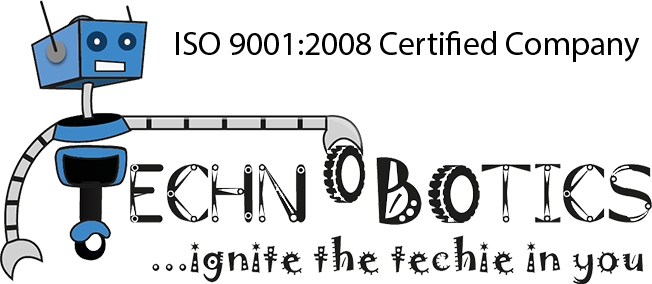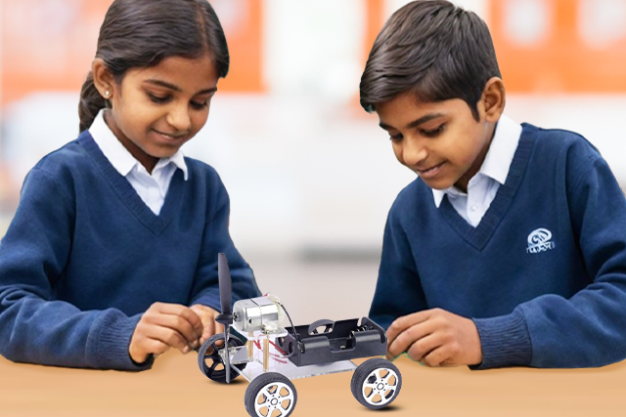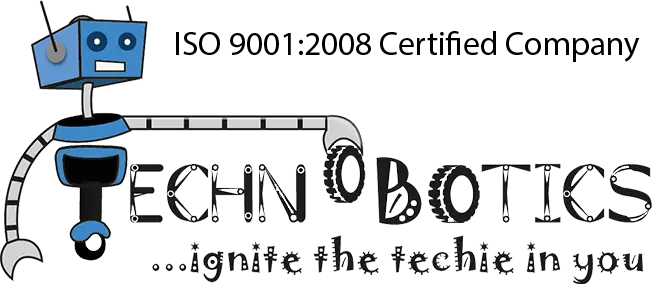The integration of robotics education in schools has emerged as a crucial component of preparing students for the challenges and opportunities of the future. Robotics education goes beyond mere technical skills; it fosters critical thinking, problem-solving abilities, and creativity while nurturing a deep understanding of STEM (Science, Technology, Engineering, and Mathematics) concepts. This article delves into the myriad reasons why robotics education matters in schools and the transformative impact it has on students.
Importance Of Robotics In Schools
- Fostering STEM Skills: Robotics courses in Mumbai education serves as a gateway to STEM disciplines, offering students hands-on experience in applying scientific principles to real-world challenges. By engaging in robotics projects, students develop a holistic understanding of concepts such as mechanics, electronics, programming, and mathematics. These foundational skills are essential for success in an increasingly technology-driven society.
- Promoting Critical Thinking and Problem-Solving: Robotics courses in Mumbai Projects often require students to tackle complex problems and devise innovative solutions. Through trial and error, students learn to think critically, analyze situations, and adapt their strategies accordingly. This process instills resilience and perseverance, essential qualities for navigating the uncertainties of the future.
- Encouraging Creativity and Innovation: The Robotics courses in Mumbai empowers students to unleash their creativity and explore unconventional ideas. Whether designing a new robot or programming its functionalities, students are encouraged to think outside the box and experiment with novel approaches. This creative freedom fosters a culture of innovation, inspiring students to become the inventors and innovators of tomorrow.
- Building Teamwork and Collaboration: Many robotics programs emphasize teamwork, requiring students to collaborate effectively to achieve common goals. By working in teams, students learn to communicate, delegate tasks, and leverage each other’s strengths. These collaborative experiences mirror real-world scenarios, where interdisciplinary teamwork is essential for tackling complex challenges.
- Preparing for Future Careers: The skills acquired through robotics education are highly sought after in today’s job market. From robotics engineering to artificial intelligence development, proficiency in STEM fields opens doors to a wide range of lucrative career opportunities. Moreover, as automation continues to reshape industries, individuals with robotics expertise are poised to play key roles in shaping the future workforce.
- Fostering Diversity and Inclusion: Robotics engineering courses promote diversity by welcoming students from diverse backgrounds and interests. Regardless of gender, ethnicity, or socioeconomic status, all students can participate and excel in robotics programs. This inclusivity not only enriches the learning experience but also fosters a culture of acceptance and mutual respect.
- Addressing Real-World Challenges: Robotics engineering courses often revolve around addressing real-world challenges, ranging from environmental sustainability to healthcare innovation. By engaging with such issues, students develop a sense of social responsibility and empathy. They are encouraged to explore how technology can be harnessed for the greater good, leading to solutions that benefit society as a whole.
- Encouraging Lifelong Learning: Robotics education cultivates a passion for lifelong learning by igniting students’ curiosity and thirst for knowledge. As they delve deeper into robotics concepts, students become self-directed learners, eager to explore new technologies and pursue further education. This intrinsic motivation lays the foundation for a lifetime of intellectual growth and personal development.
- Empowering Future Leaders: The skills and experiences gained through robotics engineering courses empower students to become future leaders and change-makers. Whether in the field of technology, entrepreneurship, or academia, robotics alumni are equipped with the tools to drive innovation and shape the course of history. Their visionary thinking and problem-solving prowess hold the potential to address some of the world’s most pressing challenges.
- Cultivating 21st Century Skills: In addition to technical expertise, robotics programming for beginners cultivates a diverse set of 21st-century skills, including communication, creativity, adaptability, and resilience. These skills are essential for thriving in an ever-evolving global landscape, where agility and versatility are prized attributes.
In the modern age of technological marvels, robotics stands at the forefront of innovation, blending mechanics, electronics, and computer science to create machines capable of performing tasks autonomously or semi-autonomously. Rooted in a rich history of human fascination with artificial life and automation, robotics has evolved from speculative fiction to tangible reality, revolutionizing industries, augmenting human capabilities, and sparking imaginations worldwide.
Finishing It!
The robotics programming for beginners holds immense significance in schools as it equips students with the skills, knowledge, and mindset needed to succeed in the 21st century and beyond. By fostering STEM literacy with Technobotics, promoting critical thinking, encouraging creativity, and nurturing collaboration, our robotics programs prepare students to navigate the complexities of a technology-driven world with confidence and competence. As educators continue to recognize the transformative power of robotics education, its integration into school curricula will undoubtedly pave the way for a brighter, more innovative future.


